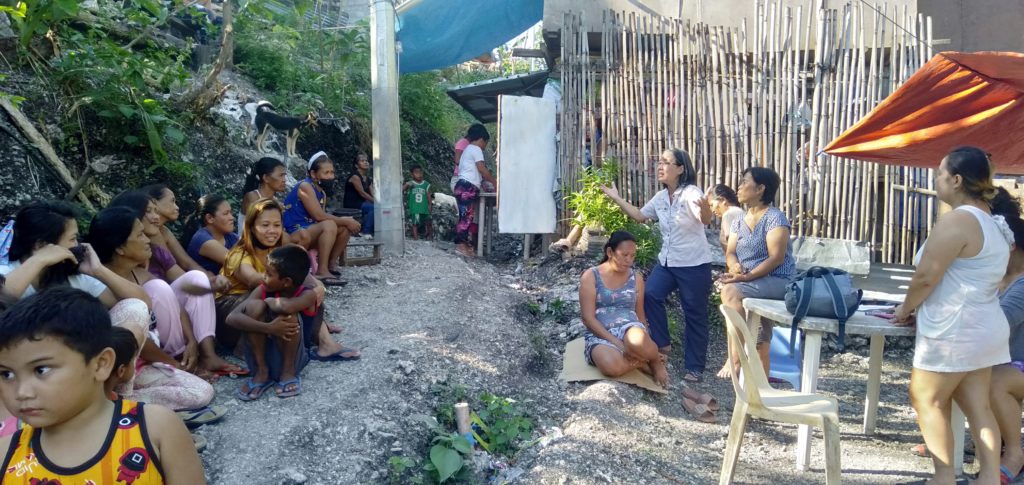The Visayas Primary Healthcare Services, Inc. conducted a five-day basic health skills training (BHST), level 1 for 44 community health workers (CHWs) of four barangays in the Municipality of Medelllin.
The training was conducted on April 9, 10, 20, 21, 22, 2018 for CHWs of Barangays Maharuhay and Kawit, and on May 4, 5, 6, 7, 8 for CHWs of Barangays Gibitngil and Daanglungsod.
The training is part of the project “Building community-based health programs to promote health and prevent disease in North Cebu” implemented by the Cebu-Bohol Relief a
nd Rehabilitation Center (CRRC) supported by Caritas Austria.
The training aims to give the CHWs knowledge and skills in order for them to provide basic promotive, preventive and selective curative primary health care services to their communities.
The first topic on the Philippine health situation enabled the participants to understand more deeply the ill health of the nation today and that health is a basic human right and that it is the government’s responsibility to provide health services to the people.
The second topic was on community-based health program (CBHP) which is a response of the people to the health situation to struggle for an alternative health care system that is nationalist, scientific, and mass-oriented through community participation.
The third topic taught the CHWs how to take the four vital signs, temperature, respiratory rate, pulse rate and blood pressure which they need to do in checking up sick patients.
Home remedies that can be used to attend to the sick were also taught to the CHWs. They included water therapy, ventusa or cupping therapy, and herbal medicine.
Another topic on personal hygiene and environmental sanitation which were presented in videos taught the importance of cleanliness to keep oneself from getting diseases from the environment.
The importance of nutrition and immunization among children, identification of malnourished children and nutritional rehabilitation were also taught to the CHWs. Control of acute respiratory tract infections and diarrheal diseases among children were additional topics taught since these two illnesses are very common in the communities which can lead to death if left unattended.
In order for the CHWs to effectively know the needs of their communities, they were taught how to do a community diagnosis and family assessment. The results of these needs assessment will enable them to prioritize plans to address these needs and come up with health campaigns.
The CHWs actively participated in the lectures, practicum and role playing during the trainings, after which they drew up an action plan that detailed how they can serve their communities with the knowledge and skills that they acquired and manage simple health problems in their families, organizations and communities.




